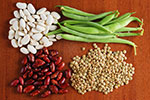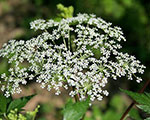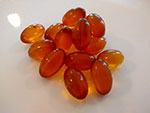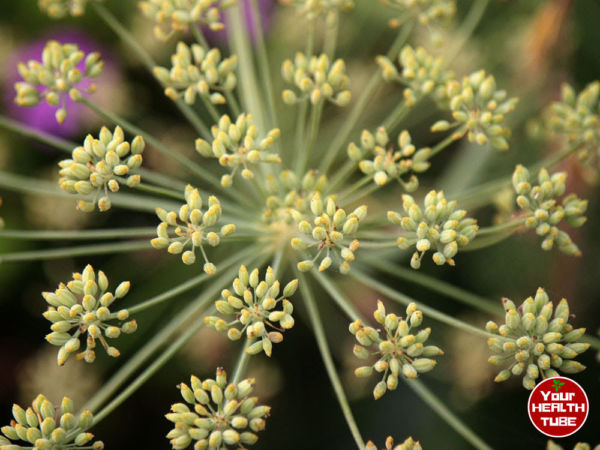Menopause occurs 12 months after the last menstrual period and ends the menstrual cycles. It can take place in the 40s or 50s. The average age is 51 in the U.S.
Menopause is a natural process. Though it also marks the end of fertility, you can stay vital, sexual, and healthy. Many women claim that they feel relieved because they no need to worry about pregnancy anymore.
Even supposing, the physical symptoms, as emotional symptoms and hot flashes, can lower the energy, cause anxiety, disrupt the sleep, or — for some women — trigger feelings of loss and sadness.
Symptoms of Menopause
In the years or sometimes months leading up to menopause (perimenopause), a woman may experience these symptoms:
- Vaginal dryness
- Irregular periods
- Sleep problems
- Night sweats
- Mood changes
- Hot flashes
- Dry skin
- Thinning hair
- Slowed metabolism
- Loss of breast fullness
- Weight gain
It is possible, but very rare, to menstruate each month right up to the last period. However, you will have some irregularity in your periods.
Natural Remedies to Getting Through Menopause Easily
Natural remedies may help you reduce the symptoms of menopause and act positively on your overall health. Today, many women are concerned about the health risks of the synthetic hormones, which are used in conventional hormone therapies, and are searching for adequate natural alternatives. However, it is important to know that some of these remedies are not necessarily safe only because they’re natural. Therefore, you need to consult your doctor before using them.
- Phytoestrogens Foods

Phytoestrogens are natural –occurring plant nutrients found in various foods, most notably soy. These foods exert estrogen-like actions on the body. Health benefits attributed to a phytoestrogen rich foods include relief from symptoms of menopause and lowered risk of heart disease, breast cancer, and osteoporosis.
As we mentioned before, phytoestrogens exist in numerous foods, essential oils, and supplements. Some of the highest concentrations could be found in: soybeans and other soy products, oats, flaxseeds, tempeh, lentils, barley, sesame seeds, carrots, apples, alfalfa, yams, hops, coffee, wheat germ, pomegranates, jasmine oil, bourbon, licorice root, clary sage oil, red clover, and beer.1
- Black Cohosh
 Black cohosh (Cimicifuga Racemosa) is the best-proven traditional herb for treating menopausal symptoms. It is used to alleviate many symptoms of menopause and is thought to be one of the greatest hot flash remedies. Black cohosh works by supporting and controlling hormonal levels that can decrease the severity of hot flashes. This herb is recommendable for every woman. It doesn’t have estrogenic activities and therefore, can be safe for women with family or personal history of breast cancer. 1
Black cohosh (Cimicifuga Racemosa) is the best-proven traditional herb for treating menopausal symptoms. It is used to alleviate many symptoms of menopause and is thought to be one of the greatest hot flash remedies. Black cohosh works by supporting and controlling hormonal levels that can decrease the severity of hot flashes. This herb is recommendable for every woman. It doesn’t have estrogenic activities and therefore, can be safe for women with family or personal history of breast cancer. 1
- Dong Quai

Dong Quai (Angelica Sinensis) is a popular plant in the West and China for its abilities to support and control the balance of female hormones. This herb doesn’t have estrogenic activities. However, scientists claim that dong Quai shouldn’t be taken if a woman is having heavily bleeding.
You can drink dong Quai tea a few times a day, or take it as a supplement. 1
- Vitamins
 Certain vitamins can truly help in treating menopausal symptoms. Vitamins can help lessen hot flashes, reduce stress, control sleep, decrease skin dryness, and other symptoms.
Certain vitamins can truly help in treating menopausal symptoms. Vitamins can help lessen hot flashes, reduce stress, control sleep, decrease skin dryness, and other symptoms.
- Vitamin E: 400 IUs is the recommended daily dose. It can help you decrease hot flashes and reduce other menopausal symptoms. You can take Vitamin E in a supplement form. Consume more Vitamin E rich foods, such as dark leafy greens, sunflower seeds, almonds, avocados, fish, olive oil, and cooked broccoli.
- Vitamin B: The B-vitamins group is really important in your diet. It can help you reduce stress, and improve your health. Generally, the daily recommendation for women is 2.3 mcg vitamin B-12, 1.2 mg vitamin B-6, 250 mcg folate, 3 mg pantothenic acid, 15 mcg biotin, 1.1 mg thiamine, 1.2 mg riboflavin, and 14 mg niacin.
- Vitamin D: It is a fat-soluble vitamin, which is naturally present in a little number of foods, often added to others. Vitamin D is usually available in a supplement form. It will help you control your mood, improve sleep, reduce dryness of the skin, and some other menopausal symptoms. 1
- Evening Primrose Oil
Evening primrose oil is a great source of gamma-linolenic acid (GLA), which is an essential fatty acid, helpful in reducing menopausal symptoms. You should use evening primrose oil regularly. 1
- DHEA Supplements
 DHEA supplements can help you fight the aging effects, weight gain, and insomnia. It can also help you improve sex drive, east hot flashes, decrease headaches and alleviate many other menopausal symptoms. You need to consult your doctor if you want to include DHEA supplement in your diet. 1
DHEA supplements can help you fight the aging effects, weight gain, and insomnia. It can also help you improve sex drive, east hot flashes, decrease headaches and alleviate many other menopausal symptoms. You need to consult your doctor if you want to include DHEA supplement in your diet. 1
- Mind – Body Practices
Just a few studies have been done on mind-body practices for treating menopausal symptoms. But, there is some evidence that recommends some practices, which may help to decrease symptoms of menopause. Here are some Your Health Tubers – suggestions:
- Yoga or meditation
- Hypnotherapy
- Acupuncture
When to Visit Your Doctor
Starting at perimenopause, you should schedule regular appointments with your GP for preventive health measure and some medical concerns. You should continue getting these visits during and after your menopause.
Preventive health measures may include recommended screenings, as a lipid screening, mammography, colonoscopy, mammography, pelvic and breast exams, and thyroid testing (if needed). Seek medical advice if you experience vaginal bleeding after menopause.
For additional menopause problems information, we recommend you to visit HT Medical Center for the Most Effective HGH and Low Testosterone Treatment. Read more
Conclusion:
Many natural remedies have been researched for menopause symptoms. However, only a few have been shown to be helpful. Experts claim that there is little evidence on the long-term safety of natural remedies, and some can interact with drugs or have even harmful side effects. The above-mentioned sections give details about natural remedies proven for menopause symptoms.

